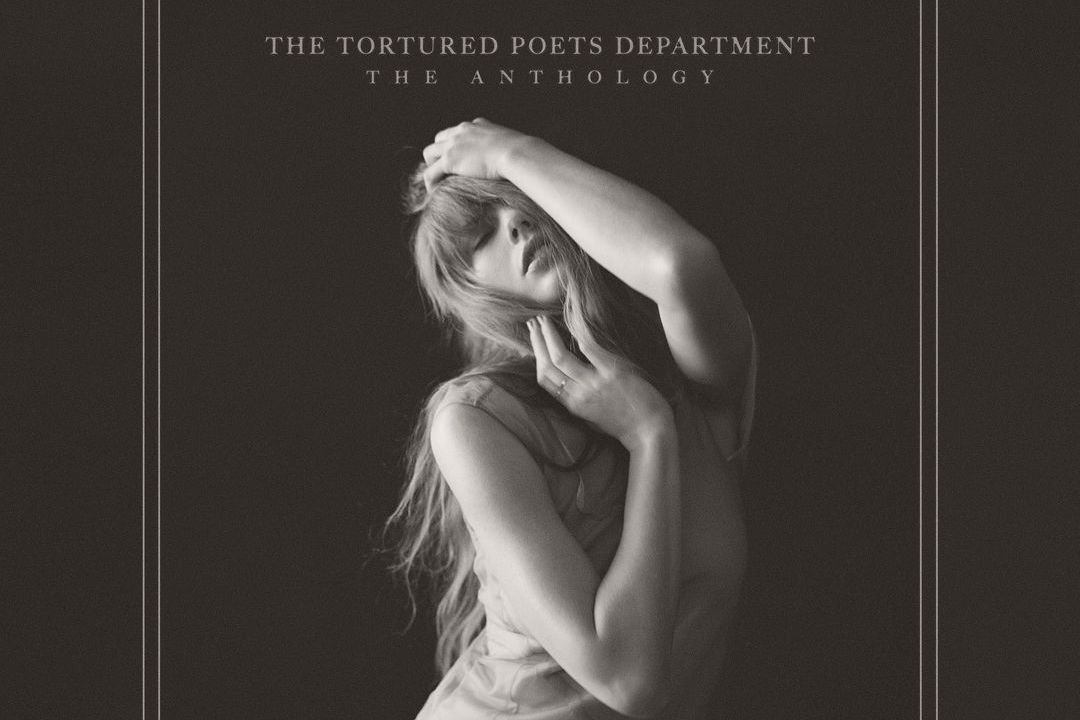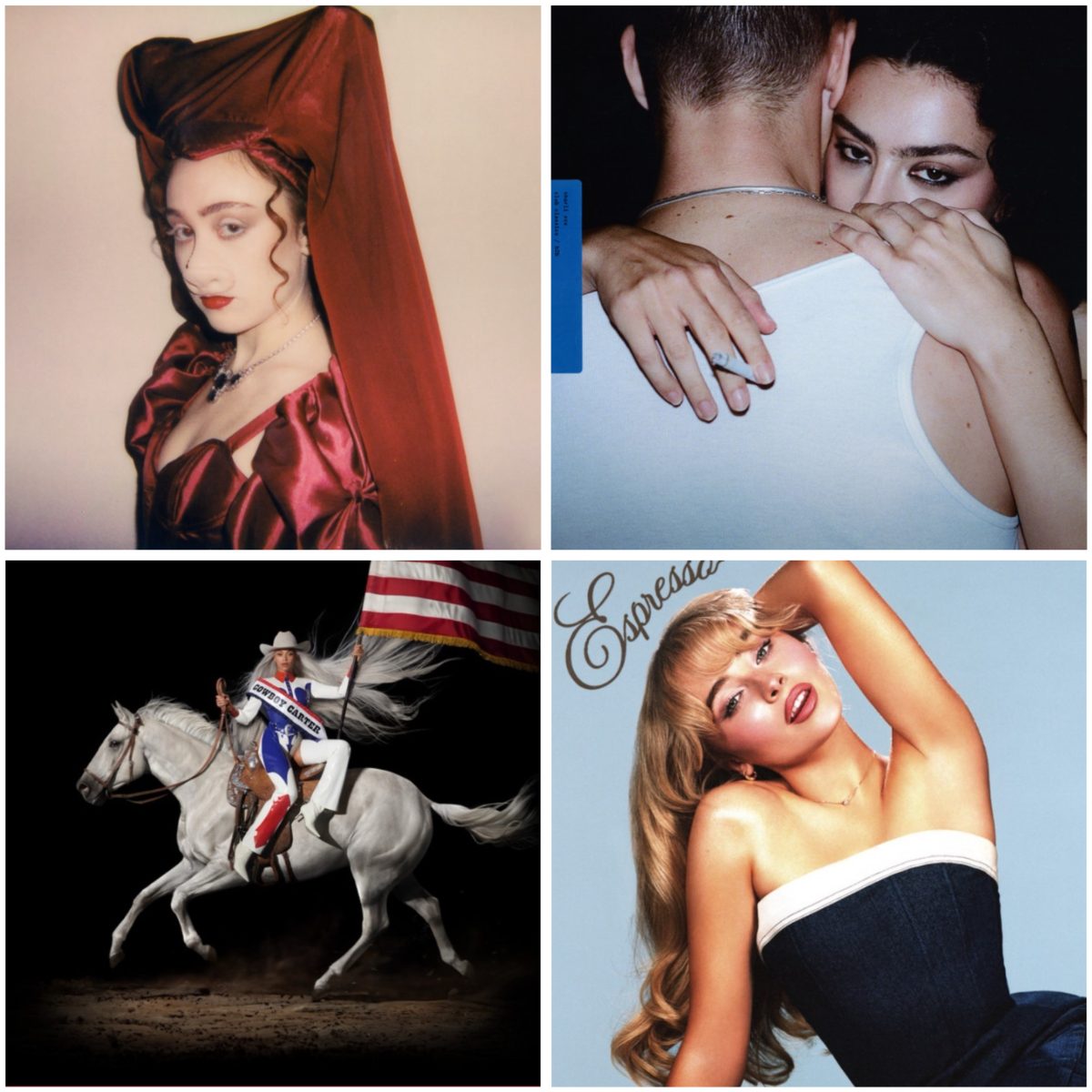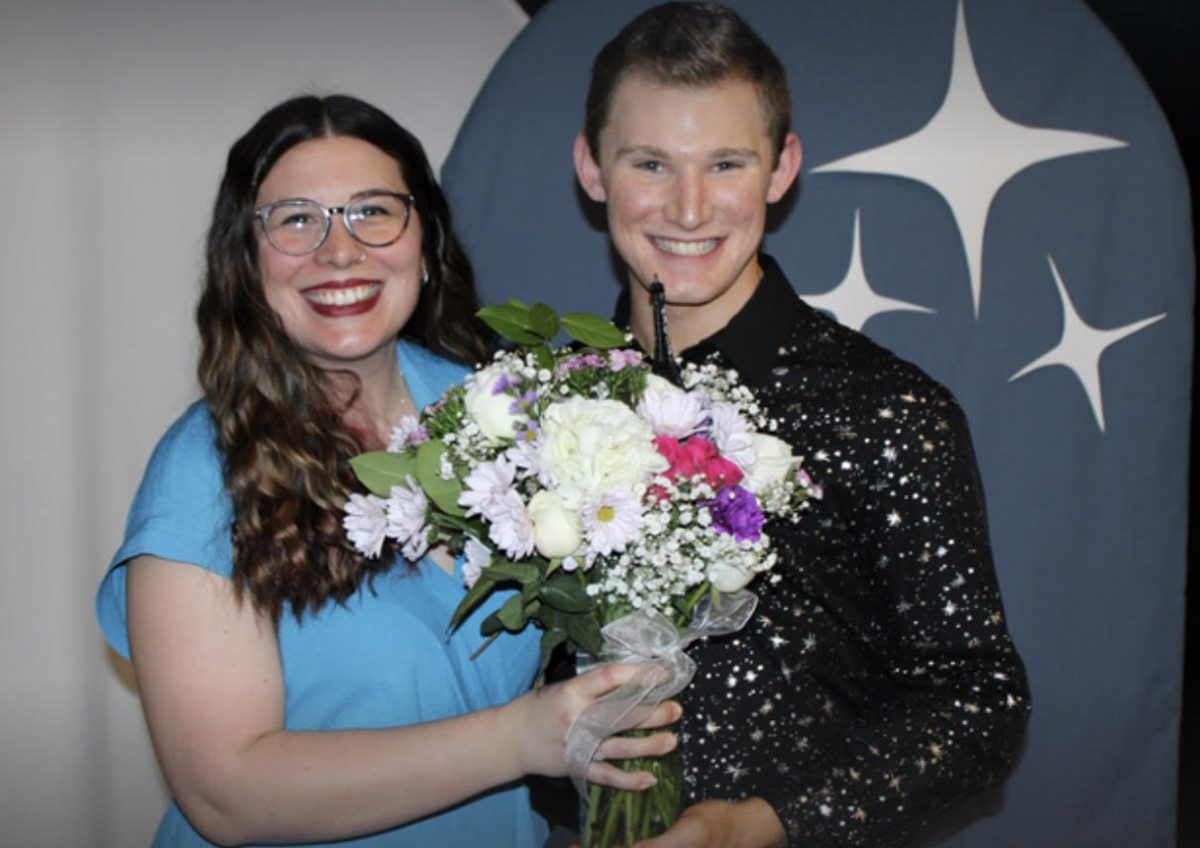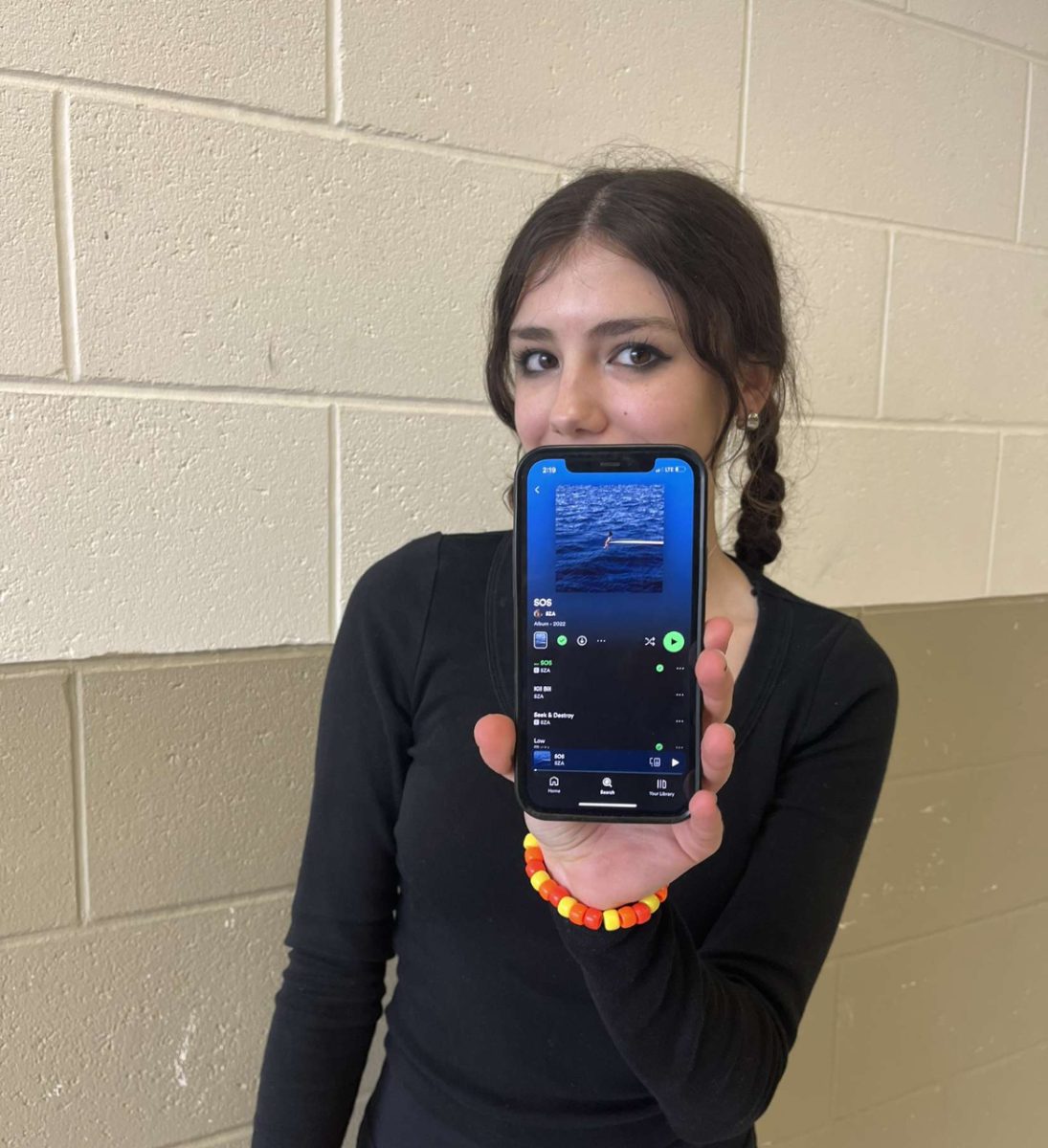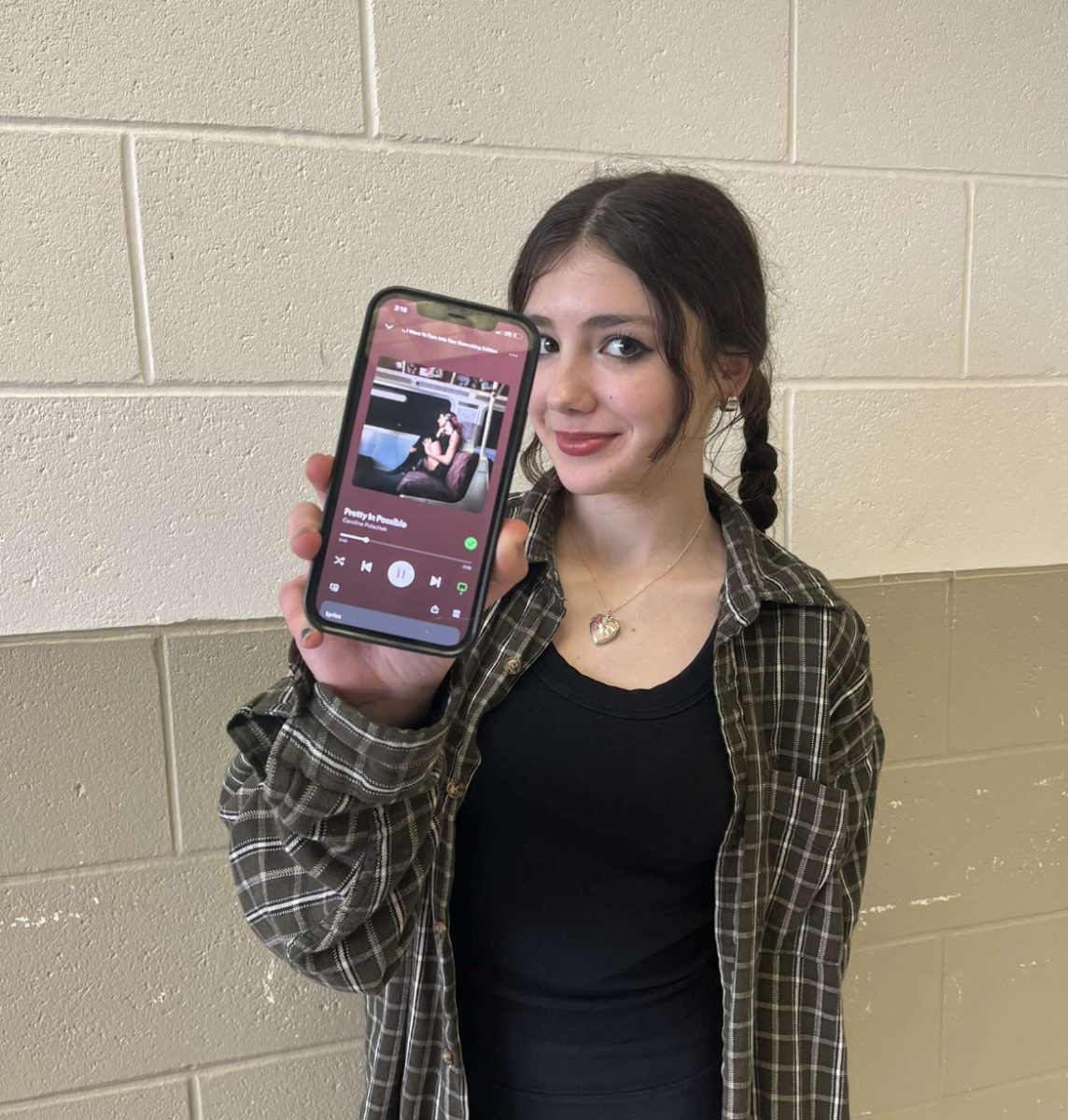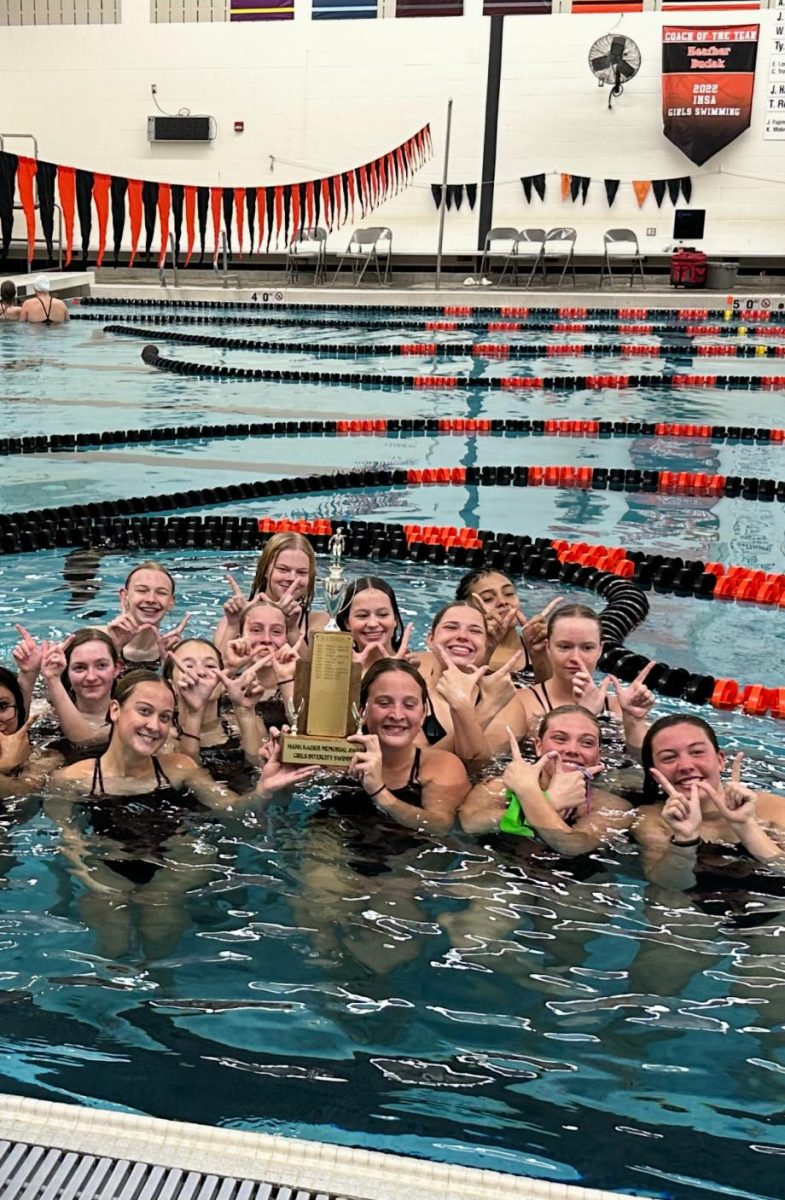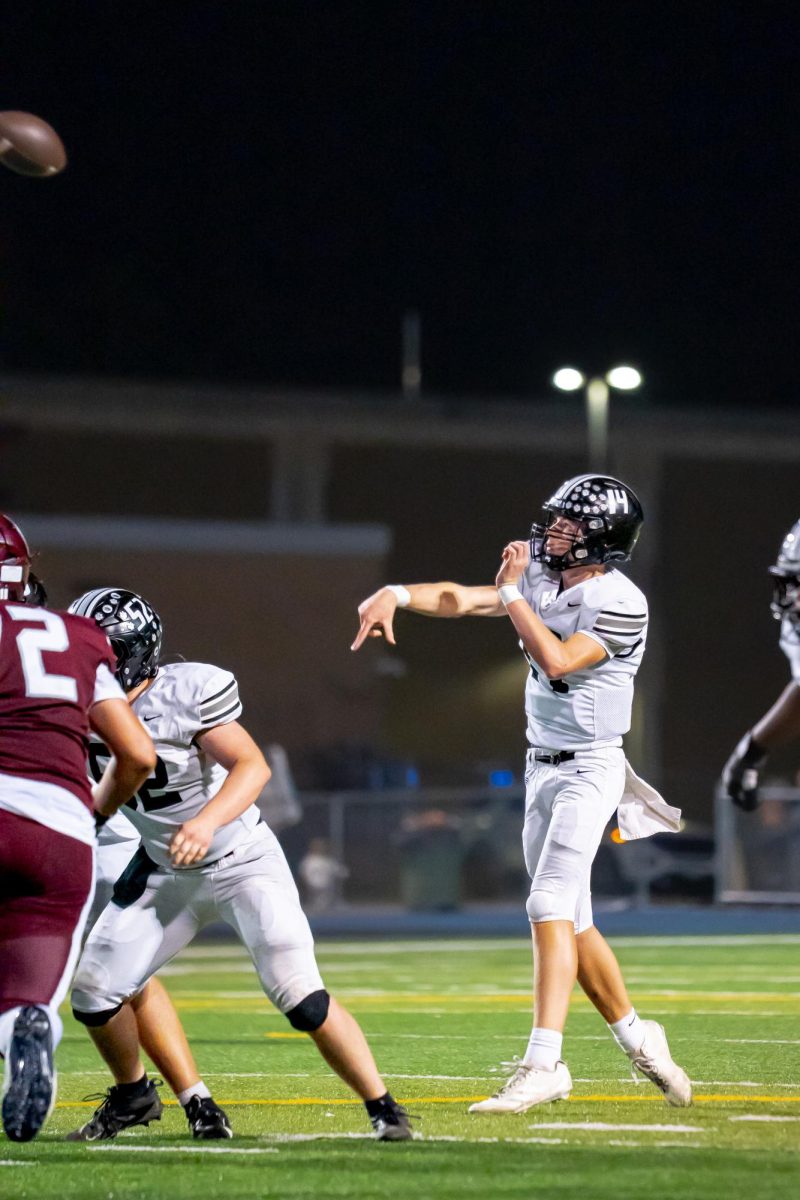The Paw Print’s reactions to ‘The Life of a Showgirl,’ Taylor Swift’s 12th studio album

I want to start by saying that I’ve been a fan of Taylor Swift since 2008.
I vividly remember driving home from college on the weekend of the Fearless album release and very quickly becoming incredibly obsessed with the lyrics that not only so vividly told the story of Taylor’s life, but also simultaneously told the story of my life.
I was mesmerized by the whole thing, and from that moment on, I have been absolutely hooked.
I’ve been hooked through literally every era.
I’ve held on through critiques of her “only singing about ex boyfriends”, critiques of her “new” pop sounds being “cringy,” critiques that her lyrics were too “lyricy,” and even critiques of her sounds not being lyrical enough.
I’ve quite literally gone through a very formative part of my life with Taylor Swift helping to narrate it all for me.
I’m quite convinced that if she reproduced “Twinkle Twinkle Little Star,” I would swoon over it in some way.
With all that being said, I do think The Life of a Showgirl is brilliant.
Do I think it’s the top album for me? Absolutely not. At this point, it’s actually not even in my top five.
However, it’s a change, and the fact that this woman, who has quite literally given us everything, was able to ONCE AGAIN change it all up and create a different vibe for this album absolutely amazes me.
I’ve seen critiques of some songs sounding similar to past songs. And to that, I say, “okay.”
Isn’t that called artist’s voice?
One of the things I’ve always loved about Taylor is that even through her evolution of genres, she is still Taylor Swift.
Even through her evolution from using innocent and all-clean lyrics to today’s albums literally using innuendos that, I will admit, make me blush a little bit, she has remained Taylor Swift.
I think when an artist figures themselves out like Taylor Swift has done, she is going to sound similar to her past. Isn’t that the point?
I’ve also seen critiques that her lyrics in The Life of a Showgirl are “cringy.”
Although, I understand this, I will also admit that I have spent many beginnings of various Taylor Swift eras unsure of how I felt. In fact, I have found over and over again, that with Taylor Swift, the more I listen, the more I find, and the more I find, the more I love whatever era we are in.
So, I struggle with calling these lyrics “cringy.” Instead, I would argue that they’re just different.
I don’t think its fair to expect Taylor’s lyricism to continually maintain the level of her work done in the likes of Folklore, Evermore or even The Tortured Poets Department, (which is absolutely one of my very top albums).
Don’t get me wrong, Folklore and Evermore are brilliant, too, but Taylor Swift is NOT just lyrics.
The Life of a Showgirl quite literally proves that.
This is an album that was compared to Reputation before it was even released…but at first listen, it’s quite obvious that it has its own vibe—a different vibe than Reputation.
The sound is more subdued with less of a vindictive bite. Both albums do invite an innate desire to get up and dance, but the dancing one does to each album is very different.
And the lyrics?
I might argue that these lyrics are still quite lyrical.
I’ll use my current favorite song on the album as a very, very strong example of this.
Let’s look at “Eldest Daughter.” YES, she makes semi-cringy statements like “I’m not a bad b****. /This isn’t savage” in this song, but Taylor, once again, knows what she’s doing.
She always has, and these cringy lyrics are followed by a statement that cuts to the point of the whole thing: “I’m never gonna let you down / I’m never gonna leave you out.”
You may be wondering what these lines have to do with one another, and if you haven’t figured it out, let my English-teacher brain work a bit for you.
It’s a juxtaposition, people. And if you don’t know what that is, let Taylor teach you.
She’s quite literally showing us that our past and present might literally be in stark contrast of one another.
It’s absolutely no secret that Taylor has been at the unwanted center of multiple dramatics—she’s always written about these things in songs like “Picture to Burn,” “The Best Day,” “Mean,” “Bad Blood,” “Look What You Made Me Do,” “Vigilante S***,” etc…all songs that people celebrated as her being cutthroat for writing.
At the same time, she’s also written and released songs like “You’re on Your Own Kid,” “Mirrorball,” and “Archer,” showing that she is much more vulnerable than maybe we all think. Maybe this superwoman “savage,” IS human?
That brings us right back to “Eldest Daughter,” again.
We all know she’s now in love, engaged, and happy. The whole album’s vibe is happy and in love…but in this newfound love, Taylor cannot forget about the process it has taken to get her here. She cannot leave behind her past self-the one who has, in her words, always “been afflicted by a terminal uniqueness,” and who has “been dying just from trying to seem cool.”
She’s doing this while purposely using juvenile language like “bad b****” and “savage” and creating juvenile scenes with “ferris wheels, kisses, and lilacs” and jumping on trampolines in someone’s backyard to relate to a younger self who, might I say, was navigating her Reputation?
The language and anecdotal choices are a direct representation of her past: someone who thought she knew who she was and what she wanted when she, too, was juvenile…but also someone who now realizes that she actually had no clue back then.
In “Eldest Daughter,” she says: “when you found me I said I was busy. That was a lie.”
She says, “when I said I didn’t believe in marriage, that was a lie.”
Both of these lyrics prove that the newer/older Taylor knows that the younger/juvenile Taylor thought she knew who she was and what she was doing.
As she’s gotten older, fallen in love, and lived through all of the eras we’ve watched her go through, she realizes she isn’t a “bad b**** savage.” All of those things were just a part of the journey of who she is today. All of those things led her to the life she has today.
In the song, she makes a promise to the eldest daughter…AKA herself, (who literally has this role in her actual family but also literally has that role in the music industry, as well). She promises that she won’t let the noise of everyone else’s opinions/advice/critiques ruin who she is and what she has worked hard to have. She promises that she’ll continue to have grace for her past self and will continue to evolve and grow.
It’s a juxtaposition between a past reputation and a new one today, and the grace that she presents her past and present self is awe-inspiring and, in my opinion, lyrical.
Taylor Swift has changed and will continue to change, and as she does, she’ll always love each of her past selves.
What a lesson for all of us to learn from.
As I’ve written this, I’ve revisited the memory of myself absolutely jamming to Fearless in my car on my way home from college: the first time I fell in love with all things Taylor Swift.
I was juvenile then…only 20 years old. I didn’t know the world yet and I certainly did not know what my life would look like today.
If I were to compare my life back then to the one I have now, I , too, like my girl T Swift, might use a juxtaposition to bring it to life.
**Natalie Spath is the advisor for The Paw Print. She is also an English teacher at Normal West.**
Taylor’s storytelling remains unmatched and we have entered the season of identifying the protagonist in each of her songs.
Of course, Travis Kelce will likely be the main focus of each of her upbeat, poppy songs (Hello, “Opalite!”) and “Eldest Daughter” will ring true for all of us who are blessed with holding that title.
This Swiftie will be riding “The Life of a Showgirl” roller coaster into the next era waiting for the vault tracks to wreck me in the worst way.
**Deidre Ripka is the Director of Secondary Education in Unit 5.**
I was surprised at the softer vibe of the album.
With Max Martin and Shellback on this album I was expecting a similar sound to Reputation or 1989.
I was expecting punchier pop sounds and instead found a blend of pop and yacht rock. It was a good surprise though!
I love the album and having only listened to it one time through at the time of writing this, I would say “Elizabeth Taylor” is at the top of my playlist.
**Jade Griffin is physics and AP physics teacher at Normal West.
The Life of a Showgirl: My cold listen was at 5 am on Friday so I could preview the tracks before my daughter got up. Since then I have played “Fate of Ophelia” and “Eldest Daughter” too many times to count. It is now Saturday evening and I am listening to the explicit version as I type this while my daughter’s ears are off in another room. So many words have been written about Taylor Swift and her various metamorphoses, I doubt there is much new to say. So I will speak from my small piece of ground as a latecomer to the Taylor Swift world.
Most days, I feel just a little too old to be a “credible” Swiftie (I was nine the year she was born; you can do the math). Beyond the album Red, I never attached myself to any particular ritual of listening. But when my then-6-year-old daughter became a fan, Taylor Swift became part of the musical current our family swims in. Four years later, my daughter has performed “Love Story” and “You Belong with Me” at her school talent show, made friendship bracelets, attended a Taylor Swift party at the Normal Public library (thank you, NPL!), dressed in the style of Evermore to view the Eras Tour theater release with friends, and cheered the release of Midnights and TTPD. She awoke at 6 a.m. on Friday, Oct 3, to listen to the mom-approved songs from The Life of a Showgirl.
More than just participating in this music and culture that delights my daughter, I find myself admiring the life and identity this young musician has carved out for herself in the face of biting criticism and the indulgences of fame that lead so many away from the best of their own humanity. Taylor Swift’s story songs reflect to young American women the possibilities of changing your mind, maturing into something new, and holding a bit of grace for earlier versions of yourself. It is that invitation to a graceful glance to the past and a liberating release of what you cannot control that I find so appealing about her latest album.
This benevolent backward glance is perhaps most pronounced in “Eldest Daughter,” where Swift acknowledges the paradoxes of perfectionistic ambition accompanied by that desperate human desire to belong. She voices both self-pitying ”terminal uniqueness” and selfless promises of loyalty to those she loves. I think I first became aware of this gentle gift to herself and to her fans in TTPD’s “The Manuscript,” when the professor reminds her “Looking backwards / might be the only way to move forward.” The song ends with a call to release “the story that wasn’t (hers) anymore.” And now we have The Life of a Showgirl’s “beautiful time lapse” where she can forgive the “things (she) said were dumb.” She also manages to reject the narrow, tragic showgirl storylines presented in Ophelia and Elizabeth Taylor, choosing, instead, to pass the baton (or at least share it) with the newest up and coming showgirl, Sabrina Carpenter. (When my daughter recognized Sabrina Carpenter’s voice on the last track she said, “My favorite two voices in the same song!”)
And along the way Taylor Swift lets her mind romp and play in the fields of literature, social theory, and, yes, celebrity disses. I admire her sense of play above all. She sets ambition next to irritation next to anger next to swooning love in satisfying rhyme. More “lightning strikes” and “onyx nights” and “Opalite,” please! The ever widening circles of her albums continue to do the good work of reminding listeners that literature is a space for the mind to play (Hello, Hamlet! Welcome to the party! Meet Cassandra and Frankenstein…and Icarus…and Juliet…). Taylor Swift’s playful, earnest conversations with her past selves insist on her own becoming. That transformation is in constant conversation with the way fame inevitably frames every facet of her life, and she has become skilled at carving out her own accepting and joyful narrative in the midst of it all, as she does in these lines in the album’s title song: “And now I know the life of a showgirl, babe/…Wouldn’t have it any other way.”
A young woman recently told me she “likes Swift’s music” but she “doesn’t like her as a person.” It was a comment that got me thinking about how blurred her music and her life are. As I start to see glimpses of my daughter moving into adolescence in a world that will bombard her with messages of inadequacy and messages to shrink herself, I am grateful to this artist who has crafted a different message-one that takes up a lot of space and color and emotional versatility, including a little self-compassion. I hope that young woman and my daughter can someday grant themselves a portion of the grace Taylor Swift has learned to give herself. I hope, amid the noise and ever more public and punishing messages of the world around them, they can hear the message in her work that I was recently reminded of in a novel: “That’s the thing about being young, you get to change your mind.”
**Amy Reiman is an English teacher at Normal West.
Having listened to The Life of a Showgirl several times (to the joy of my husband, I’m sure), I have to say that this album is just so fun. I will probably have “Opalite” and “The Fate of Ophelia” blasting from my car speakers as I pull into the school parking lot in the morning. I will be singing along (badly) to “Actually Romantic” and “The Life of a Showgirl.” On days I’m grumpy, moody “CANCELLED!” will play as I set up my classroom for the day, even though my idea of scandal is leaving pencils from the free pencil cup on the floor instead of returning them.
There you have it. Straightforward. I like this album.
What isn’t straightforward is the reaction some fans seem to be having. “It isn’t written like TTPS,” some complain. “Where’s the lyricism?” others snark.
My first thought? Friends, Taylor Swift doesn’t stand still. If you want to listen to TTPS, you’ll have to do that because the likelihood that she’ll create something that sounds the same is slim. Her albums are explorations of genres and moments in her life and creative play. She reinvents and experiments. That’s why this album doesn’t sound like the others—it wasn’t ever going to. Most fans of Swift have favorite and least favorite albums because her catalog is so varied, and that’s ok. If your sequined Showgirl era is brief because you long for ink-stained pages and TTPD black and white, please grab your typewriter and tissues and knock yourself out. I support you. (I might even join you. I love TTPD.) If you aren’t a Swift fan period, that’s cool too. But to dismiss this album’s lyrics as juvenile or poorly written is inaccurate.
Is there innuendo? A whole song’s worth. But instead of sounding immature, the song just sounds…happy. Playful. The opposite of tortured, which makes sense. If she were writing “dancing phantoms on the terrace, are they secondhand embarrassed that I can’t get out of bed cause something counterfeit is dead”-style lyrics about her new fiancé, I would be concerned. Anyway, Shakespeare used even more innuendo, and I don’t hear critics decrying his writing as immature.
And, yes, there’s a song where she uses the cringey lingo of my people, the Millennials. Looking at you, “Eldest Daughter.” But Swift isn’t embracing the terms “bad” and “savage.” She isn’t saying they are cool. Instead, she writes with the knowledge that these eye-roll-inducing words represent people she tried to be at various moments in her career, personas she thought she had to embrace but that were never any more authentic than they sound. She is in on the joke; especially in a song where she opens by singing about how so many people are online putting on these apathetic, nihilistic facades, it makes sense that she explores her own past self’s facades. She doesn’t use these words because she thinks they are current and cool, but because she knows they are neither and is acknowledging her own growth.
The final moment people point to as they accuse Showgirl of being juvenile is one in “Father Figure” that raised brows. Truthfully, mine met my hairline. But in a song where she confronts the way “father figures” in the music industry wield power, it isn’t poor writing or childish to assert her own power and bluntly suggest she was triumphant over the men who tried to hold her life’s work hostage. If Swift’s language here isn’t your cup of tea, I totally get it; but that doesn’t make it bad writing.
The writing on this album is different, which certainly leaves space for people to have opinions. Yet, personal preference isn’t the same as an objective evaluation of artistic merit.
Love it. Don’t. That’s your call, but to me, Showgirl is layered and surprising. It’s exuberant and cheeky. It’s fun.
And I’m here for it.
**Jenn Renchen is an English teacher at Normal West.
Your donation will support the student journalists of Normal West High School. Your contribution will allow us to purchase equipment and cover our annual website hosting costs. We are incredibly thankful for your generous donation!

